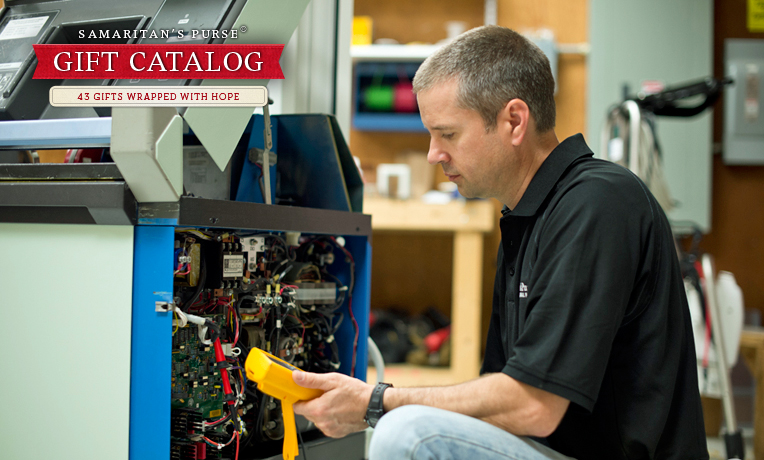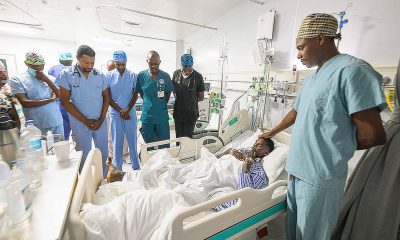World Medical Mission helps supply working equipment to mission hospitals around the world, often meaning the difference between life and death.
In many parts of the world, there are hospitals running on minimal medical supplies. Their doctors work as hard as they can to supply the best care available, but often, it’s not enough.
Donating through the Samaritan’s Purse Gift Catalog to the medical equipment fund helps bring the necessary supplies to hospitals that would otherwise never have access to life-saving devices.
Give Medical Equipment“They have no means of support because it costs just as much to buy this equipment in the Congo as it does in U.S., and the hospital in the Congo doesn’t have the budget or funding that we have here,” said Jim Moore, the World Medical Mission technical supervisor. “So the only way they can survive is having donated equipment sent to them because they don’t have the money.”Moore recently traveled with our team to the Philippines after Super Typhoon Haiyan devastated much of the country. He delivered medical equipment for use at our mobile hospital, which we set up in the hard-hit area of Tacloban. Bandages, patient monitors, and pulse oximeters were among the supplies on the eight medical pallets.
Hospitals, clinics, and doctors’ offices typically donate medical equipment for Samaritan’s Purse to distribute. Used equipment is sent to our international headquarters where we have a team of specialists who refurbish the equipment and prepare it to be sent where most needed. Other times, depending on the needs of the mission hospitals we’re supporting, we use our funds to buy new or already refurbished equipment.

Moore worked on equipment in the Philippines to help our medical personnel treat patients at Shistosomaisis Hospital.
Moore gives the example of infant incubators, an item that is often in high demand among our mission hospitals. To refurbish one in-house, the cost is about $300 to $400. To buy an already refurbished incubator costs $1,200, and to buy a brand new one would be close to $20,000.
“Imagine going to the OBGYN and not having an ultrasound and not seeing how mother and child are progressing,” Moore said. “The doctors are guessing without that equipment—that’s why the death rates of births is huge in many countries where mission hospitals exist.”
This Christmas season, you can give the gift of life and hope through donating to our medical equipment fund. Your gift will directly impact the lives of many sick and injured people who rely on mission hospitals for their healthcare needs.






